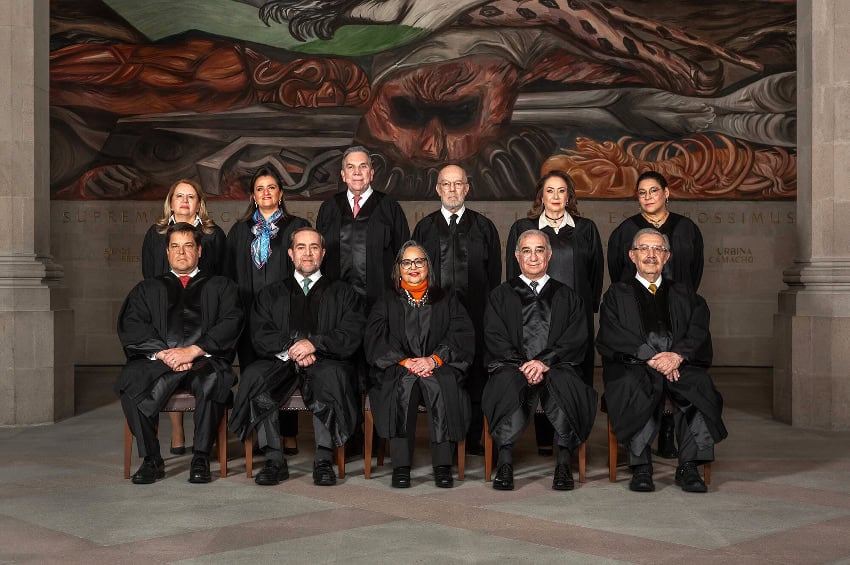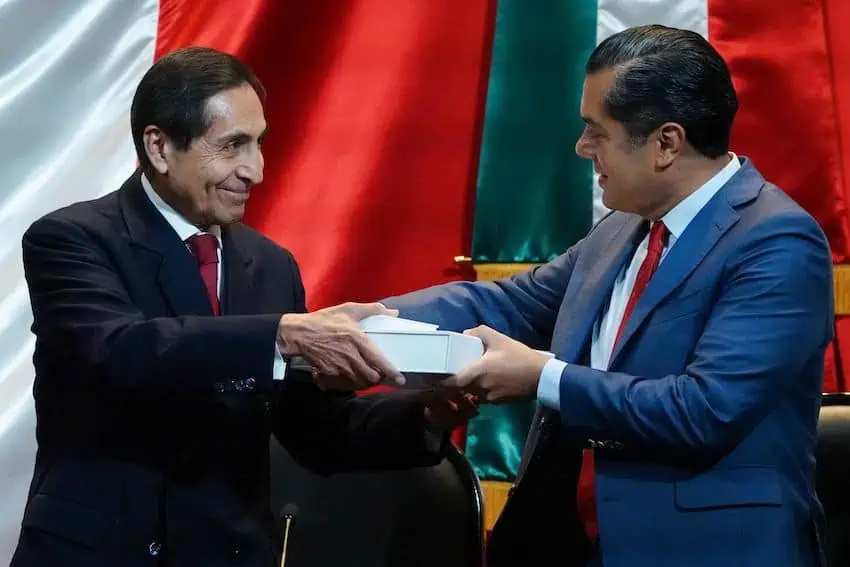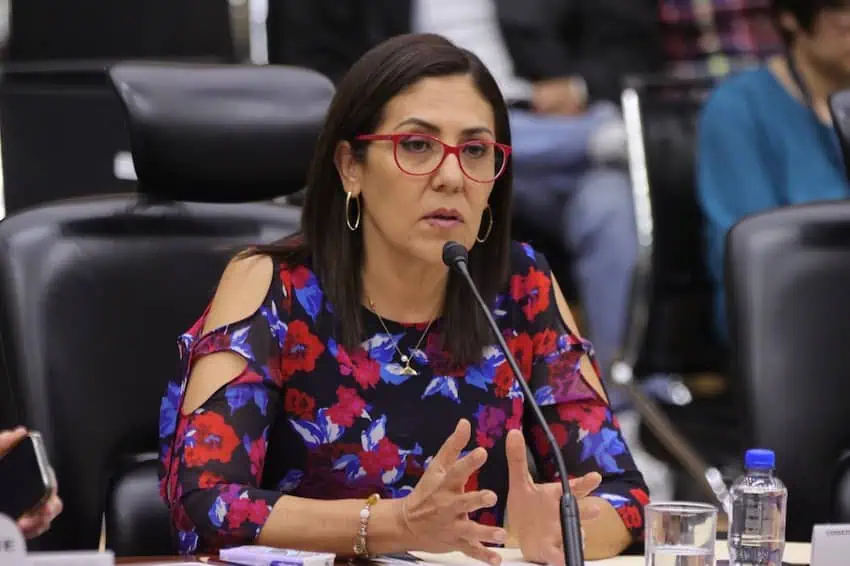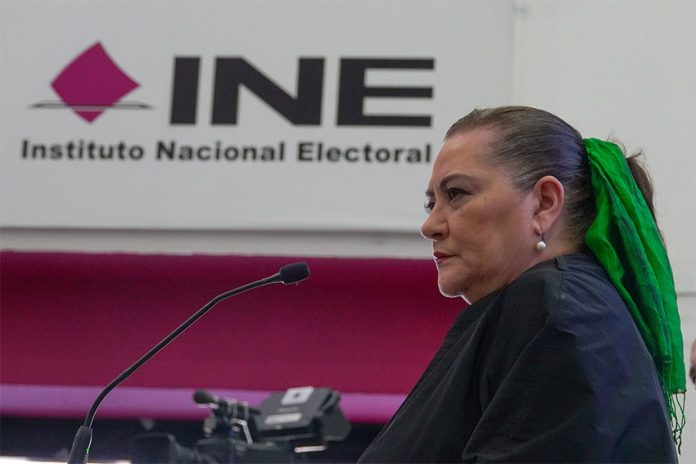Will the National Electoral Institute (INE) be able to meet its usual high standards when organizing Mexico’s first ever judicial elections in 2025, despite a sizable cut to its budget?
There are conflicting answers to that question within the INE itself.
Before we get to those, let’s first look at how we got here.
Almost three months ago, former president Andrés Manuel López Obrador promulgated a controversial judicial reform that set the stage for judicial elections to be held in Mexico for the first time ever in 2025.
Citizens will elect a total of 881 federal judges on June 1, 2025, including nine Supreme Court justices.
The INE requested funding of 40.47 billion pesos (about US $2 billion) to carry out all its activities in 2025, including the organization of the judicial elections and elections in Durango and Veracruz.

The federal government proposed that that amount be allocated to the institute in the budget proposal it submitted to the lower house of Congress in November.
However, this week the Chamber of Deputies — dominated by lawmakers with the ruling Morena party and its allies — voted in favor of reducing the INE’s budget by 13.47 billion pesos, down to 27 billion pesos (US $1.34 billion). The cut in percentage terms is 33.3%.
INE proposed using 13.2 billion pesos for next year’s judicial elections, but was only allocated 7 billion pesos for that purpose. That means the INE will have to make do with 47% less resources than what it calculated is necessary.
Ricardo Monreal, Morena’s leader in the Chamber of Deputies, said on social media that lawmakers approved “an austere and responsible budget that guarantees economic stability and confidence in Mexico.”
Critics of the federal government’s judicial reform argue that the direct election of judges will politicize the judiciary, but President Claudia Sheinabum and other government officials reject claims that Mexico’s courts will lose their independence.
Sheinbaum asserts that a judicial overhaul via the election of judges is necessary to eliminate corruption and other ills from Mexico’s justice system.
INE questions its capacity to meet standards that citizens expect
Before the Chamber of Deputies approved the reduction to the INE’s 2025 budget, the electoral institute issued a statement in which it said that carrying out the judicial elections to “the same standards of quality to which Mexican citizens are accustomed requires the approval of the budget as it was requested.”
Issued on Wednesday, the statement was titled “the INE is confident that the budget requested from the Chamber of Deputies will be approved.”
However, as noted above, that was not the case.
In its statement, the INE said that if the Chamber of Deputies approved “the reduction proposed by the Budget and Public Accounts Committee,” it would face an “enormous challenge” in organizing and carrying out the 2025 judicial elections.

To underscore the need for it to receive all the funding it requested, the INE noted that the number of federal judges to be elected next year — 881 — is higher than the number of federal representatives elected at the 2024 elections. A total of 629 federal representatives were elected on June 2: President Claudia Sheinbaum, 500 deputies and 128 senators.
High-quality elections are guaranteed, says INE president, but some electoral councilors aren’t so sure
In a radio interview on Thursday, INE president Guadalupe Taddei said that the electoral institute will guarantee that high-quality and trustworthy judicial elections are held next year even though it won’t have the funds it requested.
“We can’t lower the quality [of the elections],” she told Radio Fórmula.
Taddei said that the INE will “have to take this [budget] cut with all the professionalism in the world.”
She indicated that the INE is not happy with the cut, but described it as a “fait accompli.”
The INE’s first woman president — elected to the position last year — said that the electoral institute will have to “quickly” look at ways it can reduce costs given that it will have less funding than it anticipated and hoped for.
In subsequent remarks on Thursday, Taddei described the budget cut as “extremely big,” but once again stressed that it won’t “diminish the quality of the [judicial] electoral process.”
However, she did say that the INE “is obliged to reconsider the entire operational structure” for the judicial elections. Instead of setting up 172,000 (often small) polling stations known as casillas, the INE is looking at the possibility of installing around 80,000 larger “voting centers,” Taddei said.
Norma Irene de la Cruz Magaña, one of 11 electoral councilors including Taddei, said that many citizens will have to travel five or ten blocks to vote in the judicial elections rather than just one.

“But we’re not going to reduce the quality [of the elections] or take shortcuts,” she said.
“We’re going to guarantee that every voter has a ballot,” de la Cruz said.
Claudia Zavala, another electoral councilor, said in a radio interview that the budget cut “will affect the right of citizens to have an electoral process with institutional guarantees.”
She also highlighted that many citizens will have to travel longer distances to cast their votes.
Zavala said that the INE will do its best with the money it is allocated but added that doesn’t guarantee it will be able to organize the judicial elections with the usual “quality standards and guarantees” as ensuring such things “requires resources.”
For his part, electoral councilor Jaime Rivera said in an interview that the budget cut will affect the INE’s capacity to organize elections with its usual “efficiency, … transparency and reliability in the results.”
He said that the funding amount the INE requested for the judicial elections was the “result of serious and objective analysis,” rather than a figure it came up with on a “whim.”
Rivera also said that the organization of the judicial elections would be “considerably more complicated” than the organization of the recent federal elections. There will be significantly more candidates, vying for positions in various courts.
“We have to say it with complete clarity — with such a severe reduction in the resources allocated, it is impossible to maintain the same quality in the organization of elections,” Rivera said.
With reports from El País, El Financiero, Radio Fórmula, López-Dóriga Digital, La Jornada and La Crónica
